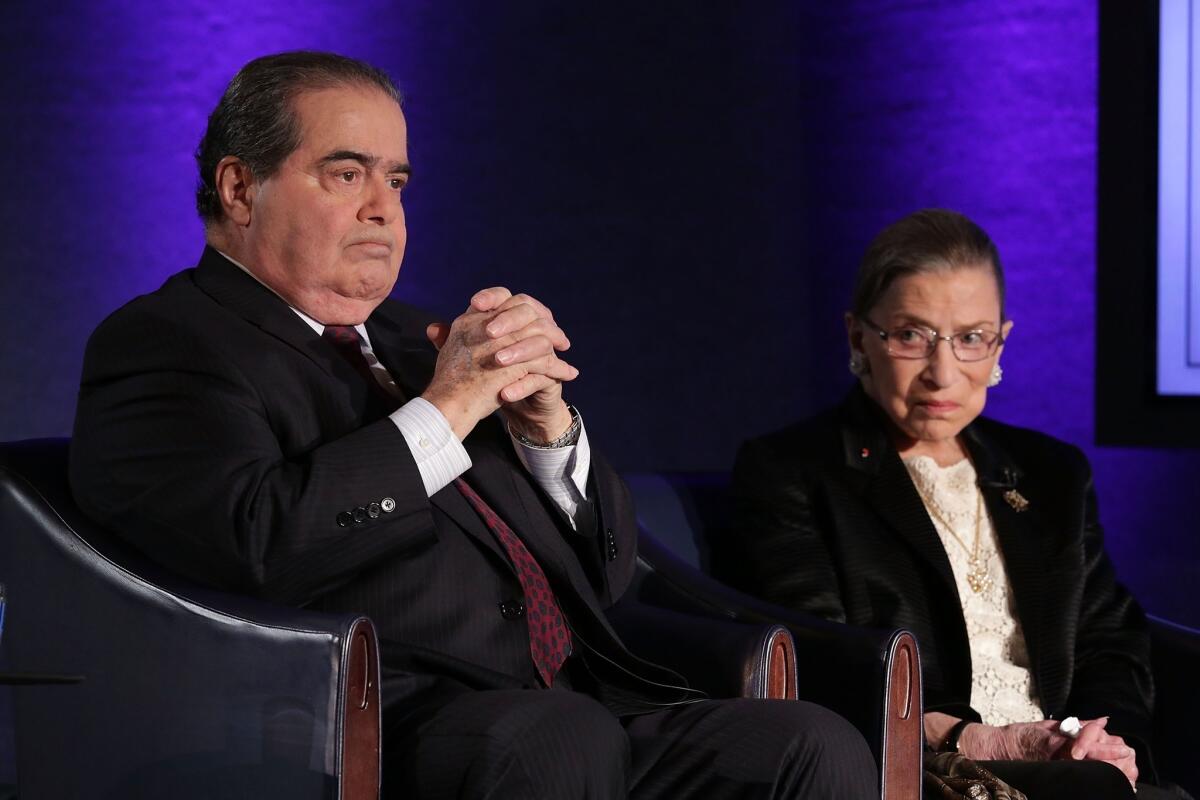Scalia criticizes historic Supreme Court ruling on freedom of the press

WASHINGTON â This spring marks the 50th anniversary of the Supreme Courtâs decision in New York Times vs. Sullivan, its most important pronouncement on the freedom of the press, but the ruling has not won the acceptance of Justice Antonin Scalia.
âIt was wrong,â he said Thursday evening at the National Press Club in a joint appearance with Justice Ruth Bader Ginsburg. âI think the Framers would have been appalled. ⌠It was revising the Constitution.â
The 9-0 ruling handed down in March 1964 threw out a libel suit brought by police commissioner L.B. Sullivan from Montgomery, Ala. He claimed he had been defamed by a paid ad in the New York Times, even though it did not mention him by name. The ad, signed by prominent Americans including former First Lady Eleanor Roosevelt, sought donations to support the Rev. Martin Luther King Jr. and the struggle for civil rights in the South.
The Alabama courts decided the adâs statements about black students being met with âviolence and intimidationâ could reflect on Sullivan, and he was awarded the $500,000 he asked for.
In reversing the judgment, the high court said for the first time that the 1st Amendmentâs protection for the freedom of the press puts limits on libel suits filed against the media by public officials. To win such a claim, an official must show that a factual statement was both false and was published with âactual maliceâ or âreckless disregardâ for the truth.
While the court in recent decades has not seriously reconsidered the Times vs. Sullivan decision, Scalia has repeatedly said he thinks it was wrong. He has contended that because libel suits had always been a matter of state law, they were not limited by the U.S. Constitution.
Ginsburg, who was there to discuss the 1st Amendment with veteran broadcaster Marvin Kalb, disagreed with Scalia. The two are close friends, but they both noted they regularly disagree on the law.
She called the Times vs. Sullivan ruling a landmark during the civil rights era because it allowed the national media to freely report on the civil rights struggle across the South. The decision âis now well accepted,â she said. âI think the Founding Fathers would have agreed with it in the 1960s,â she said.
Twitter: @davidgsavage
More to Read
Sign up for Essential California
The most important California stories and recommendations in your inbox every morning.
You may occasionally receive promotional content from the Los Angeles Times.











